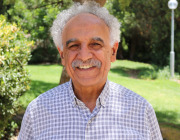Abstract:
The goal of this study was to understand the relation between adolescents’ long-term exposure to political violence (EPV) and post-traumatic stress symptoms (PTSS). We examined the relations among EPV, PTSS, and self-esteem to determine whether self-esteem could buffer the effects of EPV on PTSS. A systematic cluster random sample of 2,934 Palestinian adolescent boys and girls in the West Bank area of the Palestinian Authority and in East Jerusalem participated in a study using a self-administered questionnaire. Multiple regression analysis showed that the more Palestinian youth were exposed to political violence during the last year and during previous years, the more they exhibited PTSS and its three manifestations, that is, avoidance, intrusion, and arousal. In addition, EPV showed effects on PTSS after controlling for sociodemographic variables and self-esteem. Girls and residents of the West Bank reported more PTSS than boys and residents of East Jerusalem, respectively. Higher levels of EPV correlated with lower levels of self-esteem, and children with relatively low self-esteem were likely to report more PTSS than children with high self-esteem. Hence, the correlations between participants’ EPV and some of the PTSS were found to be partially dependent on the levels of their self-esteem, indicating moderating and mediating effects for self-esteem on the relation between degree of EPV and PTSS. The limitations of the study and implications for future research are discussed.Notes:
Funding Information: The author(s) disclosed receipt of the following financial support for the research, authorship, and/or publication of this article: This research was partially supported by a grant from the Israel Science Foundation (ISF; Grant No. 790/08). Publisher Copyright: © The Author(s) 2018.
